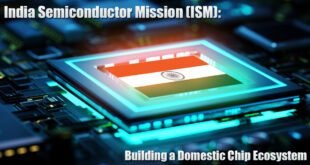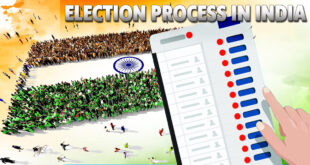Making sense of fast-changing political developments in the run-up tothe general election
Ideology may be dead in the Indian political landscape, except in some crannies of the Left parties. Fast-changing developments, where alliances are being forged to take on a bigger adversary, are without any long-term allegiances. These have produced a sense of déjà vu. Bitter enemies until yesterday are turning into friends, prompting wordsmiths to apply words like frenemies. Most recently, the source of déjà vu has been the decision of Telugu Desam Party (TDP) leader N. Chandrababu Naidu to build bridges with Congress president Rahul Gandhi in a bid to forge an alliance. The Nationalist Congress Party (NCP) chief Sharad Pawar has also been roped in. There is now an ‘all are welcome’ rush to rope in anybody and everybody who is anti-Bharatiya Janata Party.
It is only a matter of time before other regional parties are wooed and brought into a united front, vindicating the proverb from Kautilya’s Arthashastra: the enemy of enemy is my friend. That begs the question: enemies when, and friends when? It is all transient and fluid. And, ‘enemies’ is an incorrect description. They are not countries at war for territory, where there is one with imperial ambitions and the other trying to protect its turf, in the belief that it rightfully belongs to it.
These are political parties of different ideological denominations in the country that want to “serve” the people, for which they seek political power. On the question of ideology and its relatively rare occurrence in the Indian polity, consider the TDP, whose original raison d’etre was reasserting and protecting Telugu pride and anti-Congressism. It was floated as a political party in 1982 and has grown on this very cornerstone. It ruled the undivided Andhra Pradesh (A.P.) for over two decades, and now, post-bifurcation, the residual State.
Given the TDP’s bitter enmity with the Congress over these decades, Mr. Naidu’s alliance-building exercises with Mr. Gandhi, in order to take on the TDP’s former friend, the BJP, is erasing the TDP’s identity. It is nothing but pure and unadulterated political expediency.
So, Mr. Naidu’s recent meetings with Janata Dal (Secular) leader and former Prime Minister H.D. Deve Gowda and DMK leader M.K. Stalin for a repeat of the strategy of 1996 hint at an underlying sense of urgency. This urgency resonated 30 years ago too. The National Front in 1989, led by the Janata Dal under the overall leadership of TDP founder N.T. Rama Rao, and the United Front in 1996 were cases of ideological insouciance to take on a common adversary. Meanwhile, the BJP and the Rashtriya Swayamsevak Sangh are with their Hindutva ideology, but it is strategically kept on hold, except in pockets. The Congress’s socialist ideology is passé. Its secular and redistributive justice talk is amorphous with a wide chasm between word and action. And citizens feel bewildered at these political machinations as they go about trying to decipher who stands for what and where, in this unpredictable political theatre.
Source:https://www.thehindu.com/todays-paper/tp-opinion/beyond-ideology/article25489440.ece
 Chinmaya IAS Academy – Current Affairs Chinmaya IAS Academy – Current Affairs
Chinmaya IAS Academy – Current Affairs Chinmaya IAS Academy – Current Affairs



